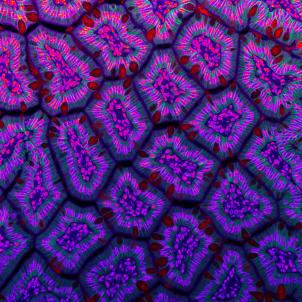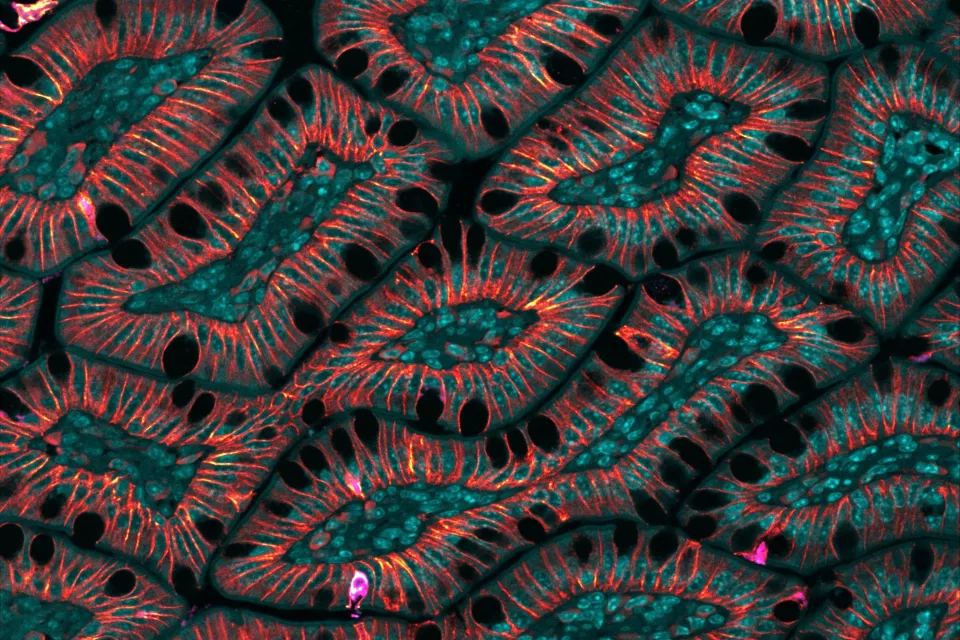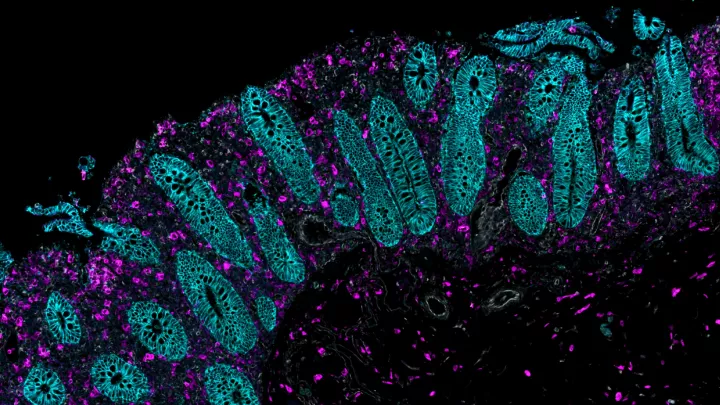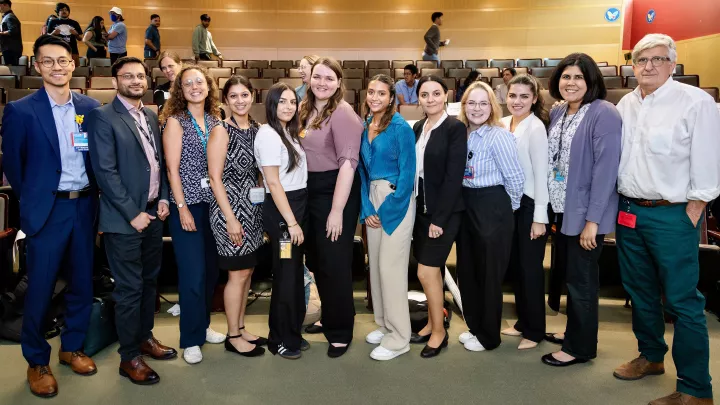The Schumacher Gut Science Lab is focused on discovering new therapeutic targets for intestinal inflammatory diseases like ulcerative colitis and Crohn’s disease.

Research Focus
We study immune and epithelial drivers of tissue remodeling, function, and regeneration in the gut.
The function and composition of the gastrointestinal tract is dynamically regulated to maintain homeostasis and appropriately respond to injury, inflammation and infection. Inadequate responses to insult can lead to acute and long-term disease. As these responses are often impaired in chronic injury and inflammation, we hope to better understand how to harness key protective tissue responses to limit intestinal diseases like Inflammatory bowel disease (IBD).
In particular, we seek to address fundamental questions of how immune and tissue signals in the intestinal tract regulate stem and secretory cells to promote intestinal health and the response to disease. Despite demonstrations of altered colonic secretory cell numbers in intestinal inflammatory disease, the mechanisms regulating these cells and their function are poorly understood. We hope to better understand the basic biology and regulatory mechanisms controlling these cells in colitis. Addressing these unknowns in the physiology and pathophysiology of the gastrointestinal tract will lead to new ways to improve GI health.
Funding
- Funding from the National Institutes of Health, National Institute of Diabetes and Digestive and Kidney Diseases (NIH-NIDDK): The role and regulation of deep crypt secretory cells in colitis
- Funding from The Saban Research Institute
- Funding from the Crohn’s and Colitis Foundation
We are a team science lab and welcome collaboration. If you are interested in working with us or have ideas on our research, please reach out: mschumacher@chla.usc.edu.



